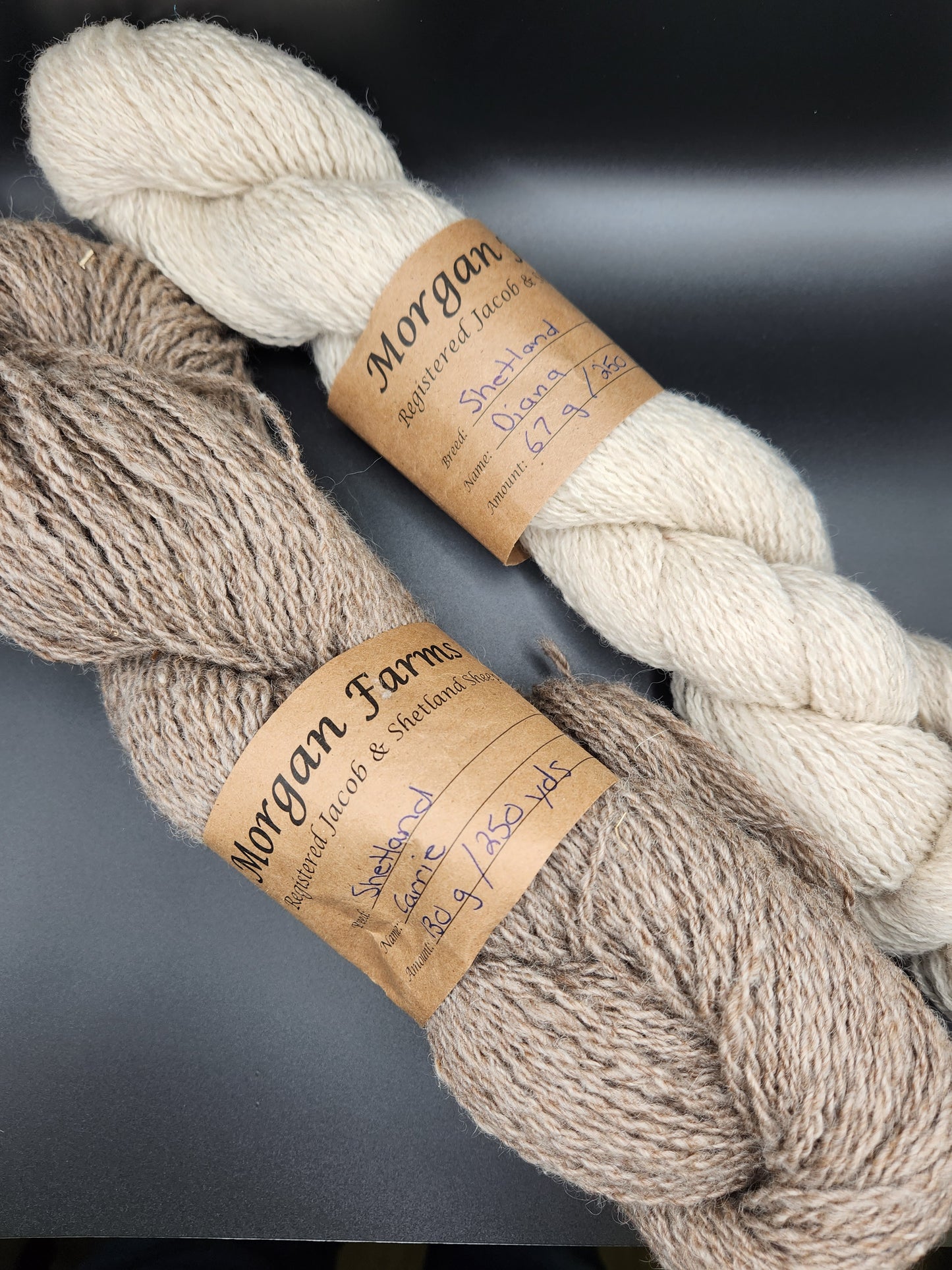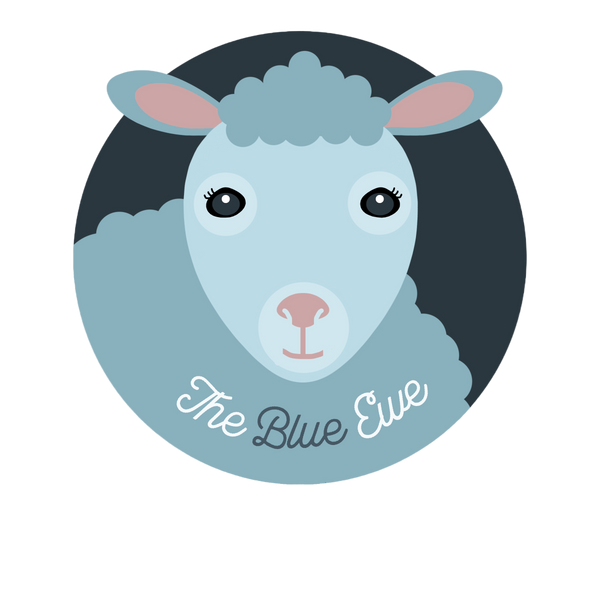Morgan Farms Millspun Yarn
Morgan Farms Millspun Yarn
Couldn't load pickup availability
We are thrilled to be the exclusive brick & mortar store to carry the Morgan Farms mill spun yarns! Located in Frankfort, Kentucky, this family farm produces yarn and fiber from award winning fleece. These aren't local judging events, but against some of the toughest Jacob and Shetland sheep in the United States at shows like Maryland Sheep & Wool, and SAFF (SouthEastern Animal Fiber Festival) in North Carolina.
They are also part of the Shave 'Em to Save 'Em program which works to help protect endangered heritage breeds of sheep in the United States.
This isn't your typical mass produced yarn! You'll likely not find matching weight and yardage throughout all skeins. This hasn't been overly processed or scrubbed, but you are still going to love the loft and it has a nice squishy softness. While you'll find some with natural dyes (meaning no harsh chemicals) like indigo, osage orange, rosemary, marigold, and more, you'll also find undyed. It is a delight to get to see the natural color of the wool itself.
Skeins are labeled with information, plus which sheep (or sheeps) wool actually produced the yarn! We will even include a little bio and photo for you.
Don't know much about Jacob or Shetland, and wondering if they really are something worth knitting or crocheting with? Check out the descriptions of each below.
Being a primitive sheep, Jacob sheep wool can have a range of fineness and staple lengths. Jacob wool ranges from 26-37 microns and the staple length can be medium to long at a length of 3-7 inches. This makes Jacob wool a sought after fiber for spinners and other fiber artists seeking a durable but soft wool with a good staple length. Even though the diameter of Jacob wool is wider than that of some of the finer wool breeds like Merino, it is very pleasant to work with. It has a fair amount of loft and spring to it, and has just enough luster to give the finished yarn a beautifully subtle sheen. Jacob sheep are white with large black spots, and the black spots have very well defined edges. This allows the white and black wool from the sheep to be easily separated, creating two colors from the same sheep that can then be spun into natural white or black yarn, or blended to create a variety of shades of gray.
Shetland sheep come in a wide variety of marking and colors – they include white sheep, black sheep, and a wide range of browns and grays. As a heritage, unimproved breed, Shetland sheep have one of three different kinds of fleeces: kindly/single-coated, long, and double-coated. The kindly/single-coated is the finest and shortest of the fleeces at only about 2-4 inches in length; it is used for fine knits such as lace, shawls and finely worked socks. The long fleeced Shetlands with soft and long staple wool between 4-8 inches in length are the most common these days, and much of the available yarn on the market is spun from their fleeces. The double-coated Shetland sheep are even more versatile than that of either of the other types, having a remarkably soft undercoat of wool and long and lustrous outercoat of wool that can reach lengths between 6-10 inches or more. The coats of the double-coated sheep can be separated, or spun together. Generally, Shetland wool has a thickness of 23-25 microns, but is can be even finer or thicker depending upon where it is gathered from the sheep. Wool between 10-20 microns can be gathered from the neck and shoulders, while wool between 25-30 microns can be gathered from the britches. Like Merino, many people who find wool to be irritating to their skin discover that wearing clothing made from the wool of Shetland sheep to be quite comfortable and not itchy at all. The wool is graded from Fine at its smallest diameter of 10 microns to Medium at its largest diameter of 30 microns, making it a very comfortable wool to wear.


